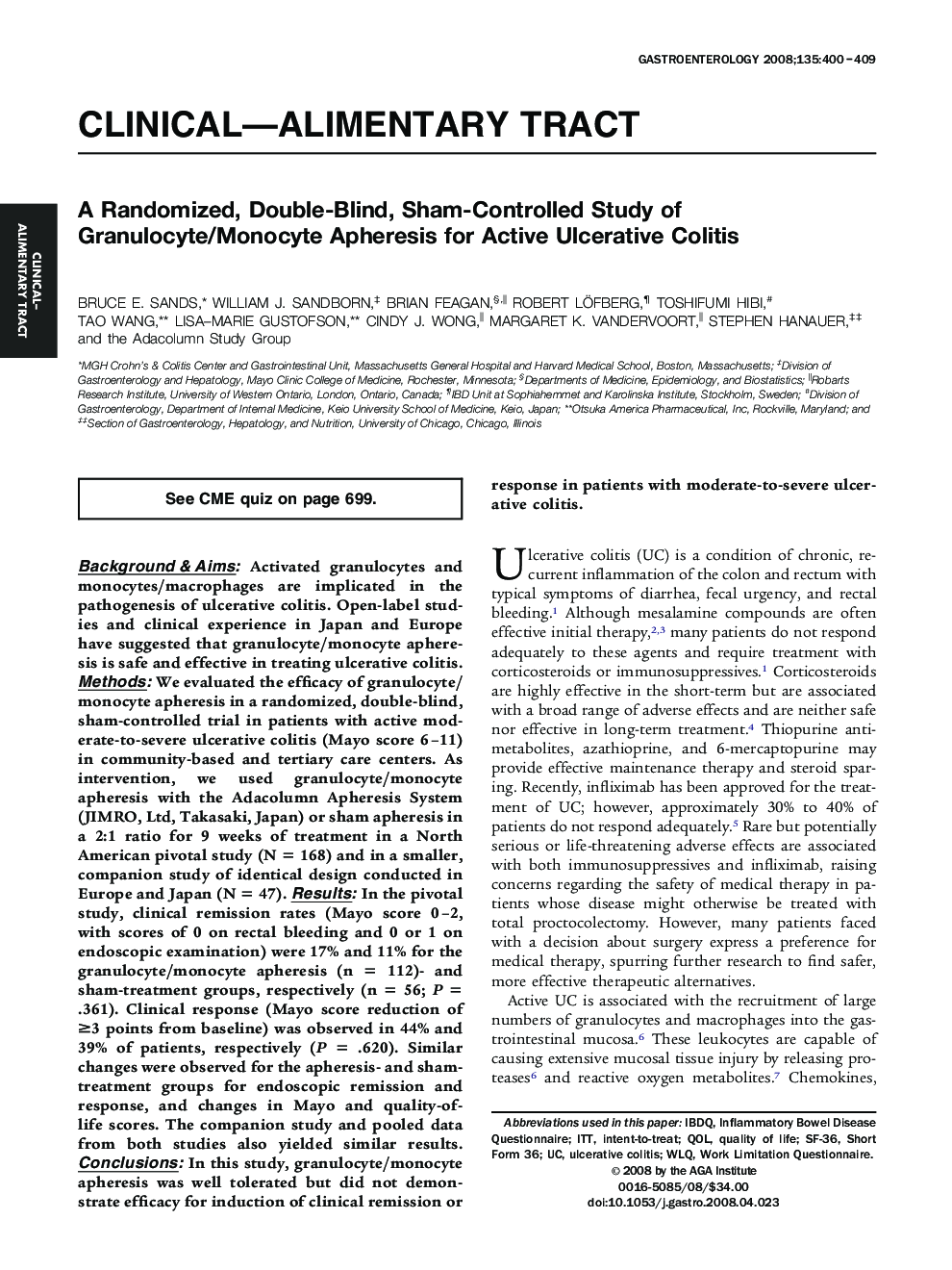| Article ID | Journal | Published Year | Pages | File Type |
|---|---|---|---|---|
| 3299295 | Gastroenterology | 2008 | 10 Pages |
Background & Aims: Activated granulocytes and monocytes/macrophages are implicated in the pathogenesis of ulcerative colitis. Open-label studies and clinical experience in Japan and Europe have suggested that granulocyte/monocyte apheresis is safe and effective in treating ulcerative colitis. Methods: We evaluated the efficacy of granulocyte/monocyte apheresis in a randomized, double-blind, sham-controlled trial in patients with active moderate-to-severe ulcerative colitis (Mayo score 6–11) in community-based and tertiary care centers. As intervention, we used granulocyte/monocyte apheresis with the Adacolumn Apheresis System (JIMRO, Ltd, Takasaki, Japan) or sham apheresis in a 2:1 ratio for 9 weeks of treatment in a North American pivotal study (N = 168) and in a smaller, companion study of identical design conducted in Europe and Japan (N = 47). Results: In the pivotal study, clinical remission rates (Mayo score 0–2, with scores of 0 on rectal bleeding and 0 or 1 on endoscopic examination) were 17% and 11% for the granulocyte/monocyte apheresis (n = 112)- and sham-treatment groups, respectively (n = 56; P = .361). Clinical response (Mayo score reduction of ≥3 points from baseline) was observed in 44% and 39% of patients, respectively (P = .620). Similar changes were observed for the apheresis- and sham-treatment groups for endoscopic remission and response, and changes in Mayo and quality-of-life scores. The companion study and pooled data from both studies also yielded similar results. Conclusions: In this study, granulocyte/monocyte apheresis was well tolerated but did not demonstrate efficacy for induction of clinical remission or response in patients with moderate-to-severe ulcerative colitis.
